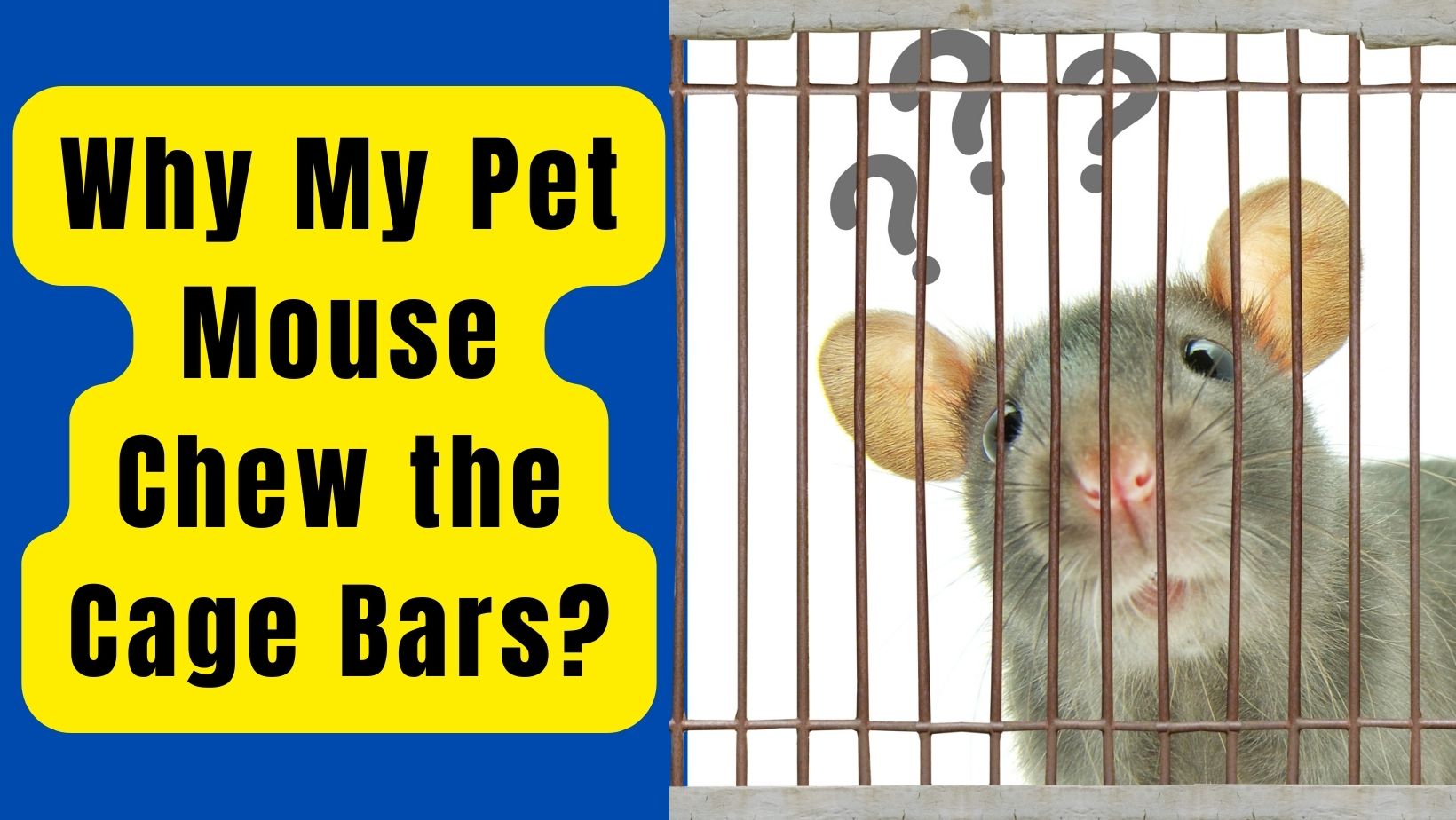Wondering Why your Pet Mouse Chew the Cage Bars? Is Rat Hunrey or Just Trying to Escape? If you’ve ever had a pet mouse, you may have noticed that it sometimes makes its way through the bars of a cage and starts to chew on them. In this blog article, we’ll discuss why your pet mouse might do this and what you can do to stop it from chewing its cage bars.
It’s not uncommon for pet mice to chew on cage bars and wires. When they do, it’s a sign that they are feeling bored, or anxious, and need some kind of stimulation or interaction. This article has different solutions for your mouse to prevent this from happening.
What Causes Pet Mice to Chew on Cage Bars
Pet mice typically chew on cage bars for a few reasons. One reason is that they might be bored. If your mouse has plenty of toys to play with and access to a safe area to explore, it’s unlikely that he or she will start chewing on cage bars.
Another reason is that your mouse may be trying to get outside of the cage. If your mouse can’t get out, he or she may chew on the bars as a way of trying to figure out how to escape.
If your mouse is chewing on the bars and it’s not because he or she is trying to get outside of the cage, there might be a problem with his or her environment or diet. If you notice that your mouse is chewing on cage bars more than usual, it might be helpful to take him or her to the vet for an evaluation.
What to Do if You Have a Pet Mouse that Chews Cage Bars
If you have a pet mouse that is chewing on cage bars, there are a few things that you can do to help stop the behavior.
First, make sure that the mouse is not hungry or bored. If the mouse is actively chewing on the cage bars, it may be because it is trying to find food or a new home.
Second, try to keep the mouse contained in its cage as much as possible. If the mouse is able to get out of its cage, it may be more likely to chew on other objects in the house.
Finally, if chewing on cage bars is an ongoing problem, you may need to take steps to teach the mouse not to chew on metal objects.
How do I stop my mouse chewing the cage?
One of the most common complaints from pet owners is their mouse chewing on cage bars. There are a few things that you can do in order to prevent your mouse from chewing on the cage bars, and hopefully, this will help solve the problem.
Some of the most common reasons that mice chew on cage bars are boredom, anxiety, and stress. If your mouse is constantly chewing on the bars, it may be because there isn’t enough to keep them occupied in their enclosure.
You can add toys and treats to the cage to help keep your mouse occupied, as well as provide them with enough space to move around.
Additionally, make sure that the cage is installed properly so that it’s not chewing on itself. If the cage is set up too high or too low, your mouse may have trouble accessing the bars. Finally, if your mouse is exhibiting signs of anxiety or stress, you may want to consider getting them checked out by a veterinarian.
Do mice Really chew on bars?
Mice are notorious for gnawing at things, and in some cases, it can be seen as a behavior problem. However, some mice will also chew on cage bars in order to get at the food or toys inside. This is usually seen in mice that are stressed or anxious. If the mouse is chewing on the bars excessively, it may be necessary to take steps to address the underlying issue.
How do I get my rat to stop chewing the cage bars?
One of the most common complaints that pet owners have with their rodents is that their pets chew on cage bars. This habit can be frustrating, and it can be difficult to get your rat to stop. There are a few things you can do to try to discourage your rat from chewing on cage bars.
Can mice chew through metal cage?
Mice are curious animals and will explore their surroundings. If something is new to them, they may try to figure it out. One thing that could get a mouse stuck in a metal cage is the metal bars.
Mice can chew through these bars if they are small enough or if they can fit their head and body through the opening. If the bars are too big, the mouse may just try to push its way out. In either case, your mouse may get hurt or worse if it can’t get free.
Why is my pet mouse trying to escape?
Your pet mouse may be trying to escape because he or she is trying to find a way out of the cage. Some mice will chew on cage bars in an attempt to gain access to the outside world. If this is happening with your mouse, try to provide more variety in the rodent’s environment and housing.
Conclusion
Many pet mice chew on cage bars in order to gain access to food or water. While this behavior may seem worrisome at first, it is typically a harmless act and can be corrected by providing the mouse with more appropriate toys and feeding opportunities.




